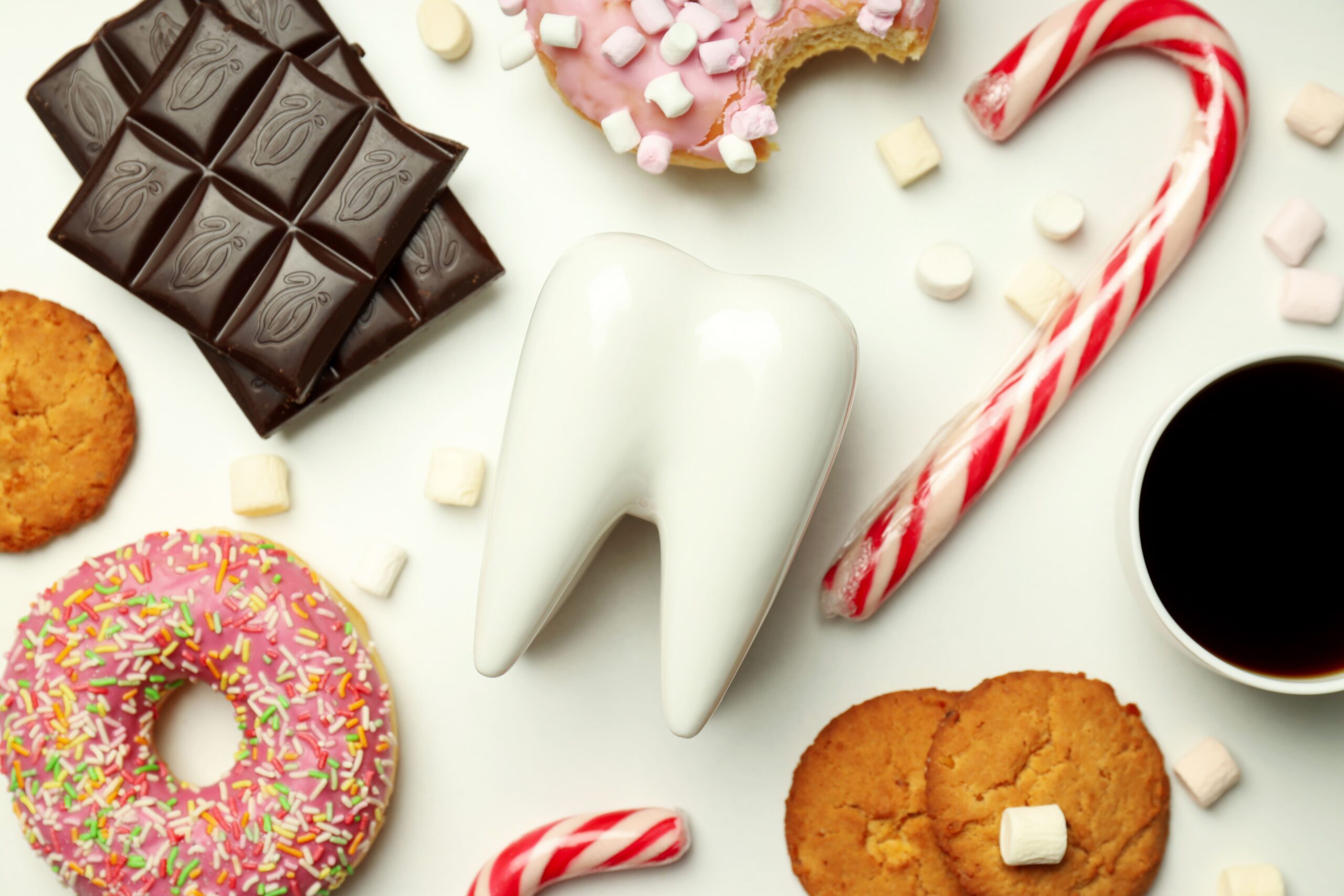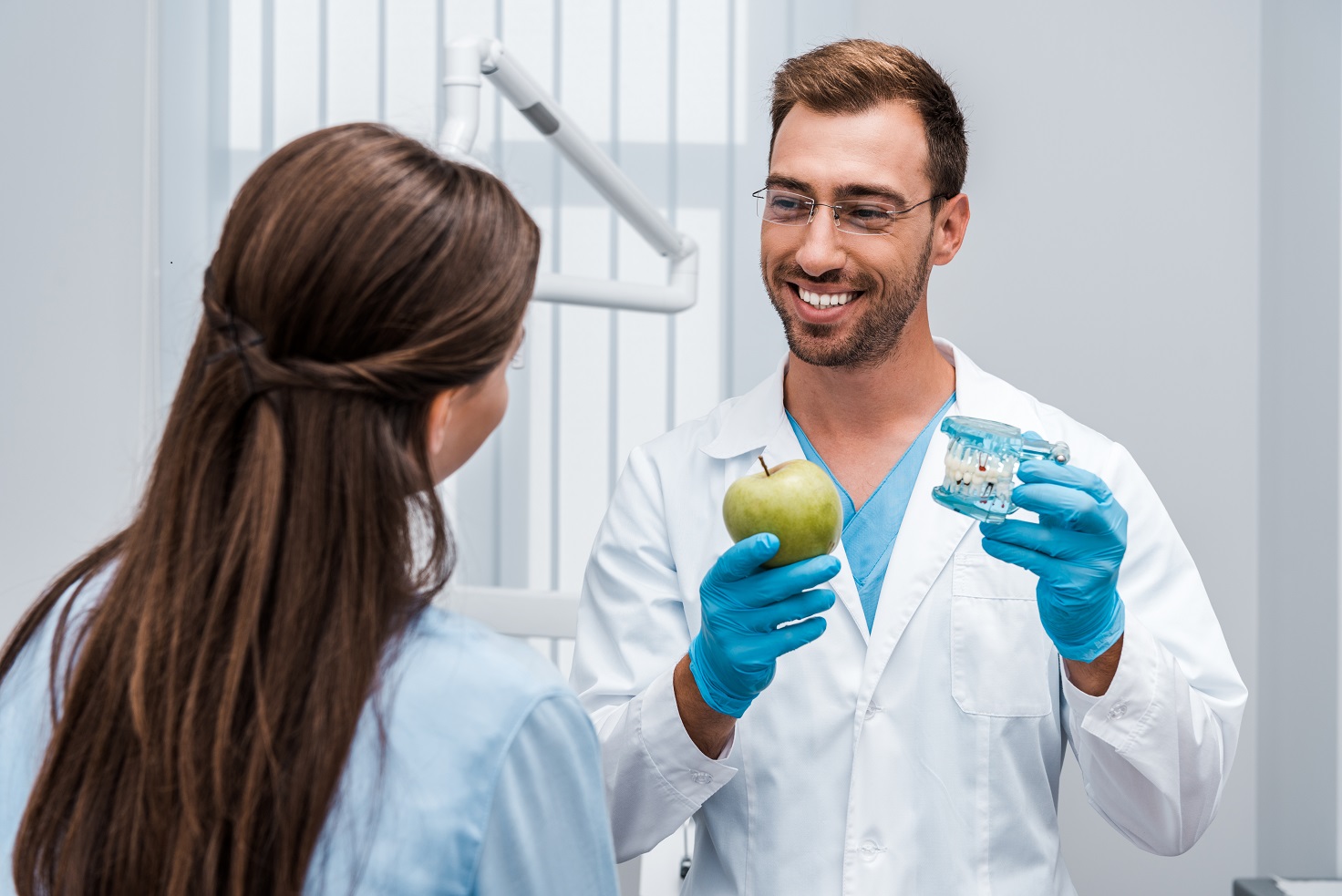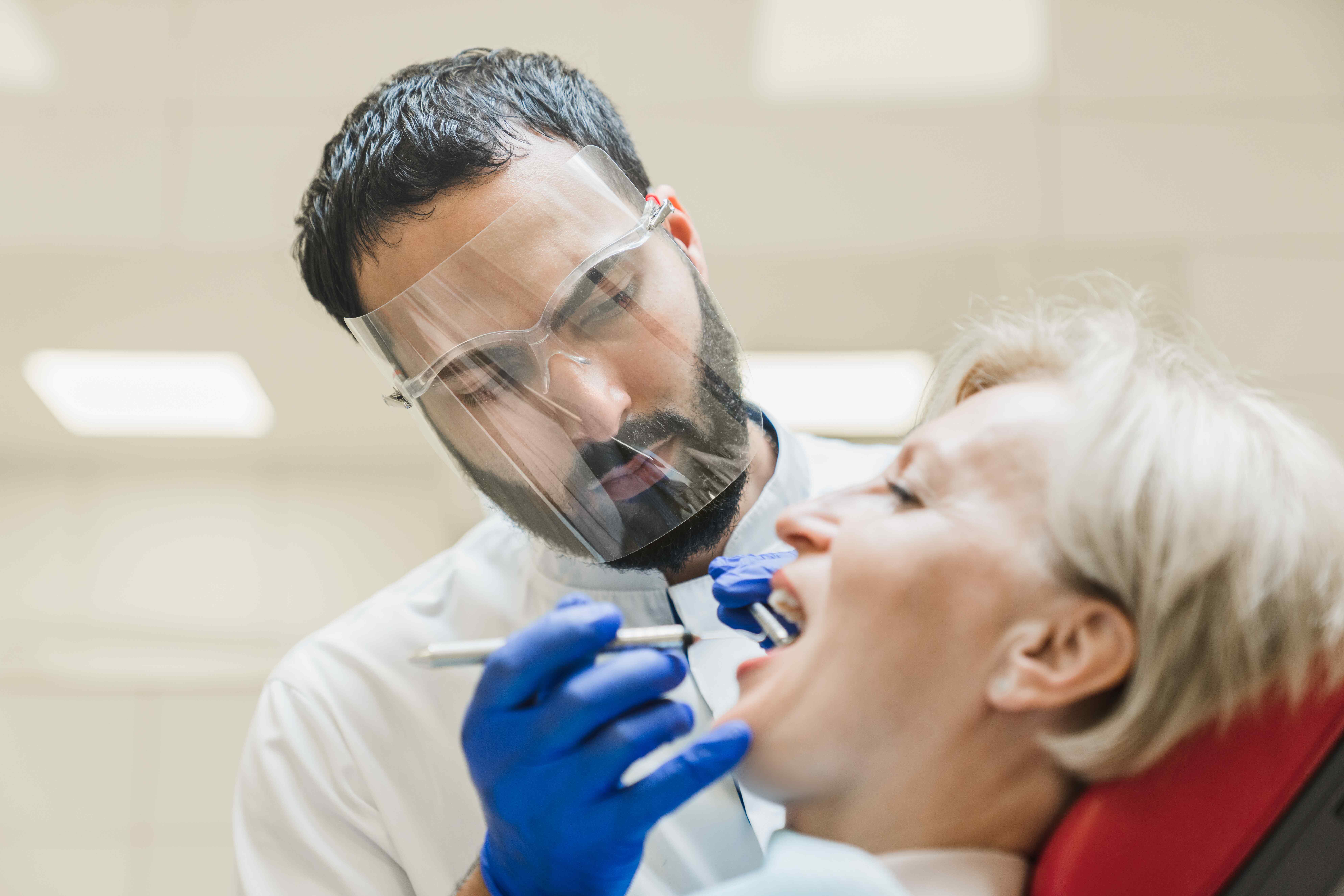Switching to a plant-based or vegetarian diet can offer numerous health benefits—improved heart health, lower…

Busting Common Dental Myths
In the world of dental care, myths and misunderstandings can often cloud our judgment and lead us down the wrong path. At Apple Valley Dental, we know that it’s essential to have accurate information to maintain optimal oral health. Today, we are debunking dental myths that many people still believe. From the misconception that brushing harder means brushing better to the belief that sugar-free sodas and fruit juices are good for your oral health, we’ll explore the truth behind these common dental myths and more. Studies also suggest that oral germs and inflammation might play a role in some diseases, including cardiovascular disease and endocarditis. Knowing the truth can help you protect not just your teeth but your overall health.
Brushing Harder Does Not Mean Brushing Better
Brushing harder might seem like a quick way to ensure your teeth are spotless, but this is a common dental myth. In reality, brushing too forcefully can harm your gums and wear down the protective enamel on your teeth. Tooth enamel is essential because it acts as a barrier against decay and cavities. When enamel is worn down, your teeth become more susceptible to damage and sensitivity.
A gentler approach is much more effective and safer for your oral health. Use a soft-bristled toothbrush and gentle, circular motions to clean your teeth thoroughly. This method is designed to remove plaque without causing harm to your gums or enamel. Additionally, brushing for at least two minutes, twice a day, ensures you’re giving your teeth the attention they need.
Understanding the proper brushing technique can make a significant difference in your dental health. If you’re unsure whether you’re brushing correctly, don’t hesitate to ask your dentist at Apple Valley Dental for a demonstration during your next visit. Proper brushing techniques are crucial for maintaining a healthy smile and preventing long-term damage.
Sugar Alone Does Not Cause Cavities
It’s a common belief that sugar is the sole culprit behind cavities, but the reality is more complex. While sugar does play a role in the development of cavities, it’s actually the bacteria in your mouth that cause the real damage. These bacteria feed on the sugars you consume and produce acids as a byproduct. It’s these acids that attack your tooth enamel, leading to decay and cavities over time.
What this means is that it’s not just about the amount of sugar you eat, but also how well you maintain your oral hygiene. If you frequently snack on sugary foods or beverages and don’t brush and floss properly, you’re providing a steady food supply for the bacteria, increasing your risk of cavities.
On the other hand, maintaining a good oral care routine can significantly mitigate this risk. Brushing twice a day, flossing daily, and using mouthwash can help keep the bacteria in check and wash away the sugars before they have a chance to do harm.
Understanding the role of bacteria and their relationship with sugar can help you make more informed choices about your diet and oral care habits. The focus should be on overall oral hygiene, not just sugar intake, to effectively prevent cavities and keep your teeth healthy.
Sugar-Free Sodas and Fruit Juices Are Not Always Good for Your Oral Health
Many people opt for sugar-free sodas and fruit juices, thinking they’re making healthier choices for their teeth. However, these beverages can still pose risks to your oral health. Sugar-free sodas often contain acids like phosphoric acid and citric acid, which can erode your tooth enamel over time. This erosion can make your teeth more susceptible to cavities and sensitivity.
Fruit juices, although packed with vitamins, can be surprisingly high in natural sugars and acids. The combination of these elements can also contribute to enamel wear and increase the risk of tooth decay. It’s essential to be mindful of how often you consume these drinks and take steps to mitigate their impact.
One effective strategy is to drink them during meals, as the increased saliva production can help neutralize acids. Additionally, rinsing your mouth with water afterward can help wash away residual acids and sugars. If you’re thirsty between meals, opt for water instead. Making these small adjustments can go a long way in protecting your oral health while still allowing you to enjoy your favorite beverages.
Flossing is Essential, Even if You Brush Regularly
Flossing plays a crucial role in maintaining your oral health and shouldn’t be overlooked, even if you are diligent about brushing. While brushing effectively cleans the surfaces of your teeth, it can’t reach the tight spaces between them. Plaque and food particles often get trapped in these areas, providing a breeding ground for bacteria that can lead to cavities and gum disease.
Flossing helps remove these hidden debris and disrupts the bacterial colonies that brushing alone can’t reach. This is particularly important for preventing gum inflammation and gingivitis, the early stage of gum disease. By flossing daily, you reduce the risk of plaque buildup, keeping your gums healthy and your breath fresher.
Many people find flossing cumbersome or time-consuming, but once it becomes part of your routine, it gets easier and quicker. Consider using tools like floss picks or water flossers if traditional floss is challenging for you. These alternatives can be just as effective and may make the process more convenient.
Proper flossing technique involves gently sliding the floss between your teeth and curving it around the base of each tooth, reaching just below the gum line. Using a clean section of floss for each tooth helps prevent transferring plaque and bacteria from one area to another. For the best results, ask your dentist at Apple Valley Dental to demonstrate the proper technique during your next visit.
Bleeding Gums Are Not Normal and Should Not Be Ignored
Bleeding gums are a signal that something may be wrong with your oral health. They often indicate the presence of gum disease, a condition that can escalate to periodontitis if not addressed. Gum disease has also been linked to other serious health conditions, including cardiovascular issues and diabetes. In fact, a number of cancers, including those of the mouth, gastrointestinal tract, lung, breast, prostate gland, and uterus, have been linked to gum disease.
If you notice bleeding during brushing or flossing, it’s crucial to seek professional advice from the team at Apple Valley Dental. Early intervention can prevent more severe complications and help restore your gums to good health. Implementing a consistent oral care routine, including proper brushing and flossing techniques, can significantly reduce the risk of gum disease. Don’t ignore the signs; bleeding gums are your body’s way of telling you something needs attention.
The Importance of Good Information for Dental Care
Accurate information is crucial for maintaining good dental care practices. Misunderstandings about oral hygiene can lead to ineffective or even harmful habits. For instance, myths like “brushing harder means cleaner teeth” can actually damage your gums and enamel. Similarly, thinking sugar-free sodas and fruit juices are safe can overlook the acids that erode tooth enamel.
Informed decisions about your diet and oral hygiene routine play a significant role in preventing cavities and gum disease. For example, understanding that bacteria feed on sugars and produce harmful acids can help you see why both sugar consumption and oral hygiene are essential for dental health. Being aware of proper brushing and flossing techniques can make your routine more effective, protecting your teeth from decay and your gums from disease.
Additionally, knowing that bleeding gums are not normal and should prompt a visit to your dentist can help you catch and treat gum disease early. Good information empowers you to take proactive steps, ensuring your teeth and gums stay healthy.
Beyond daily care, staying informed helps you understand the value of regular dental visits to Apple Valley Dental. A dentist can provide professional cleanings, spot potential issues, and offer personalized advice, making sure you’re on the right track. The more you know, the better equipped you’ll be to maintain a healthy, beautiful smile.
Regular Dental Visits Are Key to Oral Health
While your daily oral care routine is vital, nothing can replace the benefits of regular dental visits to Apple Valley Dental. Your dentist is equipped to provide professional cleanings that remove plaque and tartar buildup, which are difficult to eliminate with just brushing and flossing at home. These visits also allow your dentist to identify potential issues early, such as cavities or gum disease, before they become more severe and costly to treat.
Regular check-ups are not just about addressing problems; they are also an opportunity for you to gain insights into your oral health. Your Apple Valley Dental care team can answer any questions you have, debunk common dental myths, and offer personalized advice tailored to your specific needs. Whether it’s demonstrating the proper flossing technique or recommending the best type of toothbrush for you, the guidance you receive during these visits can significantly enhance your daily oral care routine.
Moreover, your dentist can monitor changes in your oral health over time, providing a level of oversight that helps maintain the longevity and health of your teeth and gums. By scheduling regular dental appointments, you take a proactive step in preventing serious dental issues and ensuring that your smile remains healthy and vibrant. So, don’t underestimate the importance of these professional evaluations in keeping your oral health in peak condition.
Our caring team at Apple Valley Dental is here to serve patients in the Front Royal, VA area. Contact us today to make an appointment. Your dental health and bright smile are our priorities!


